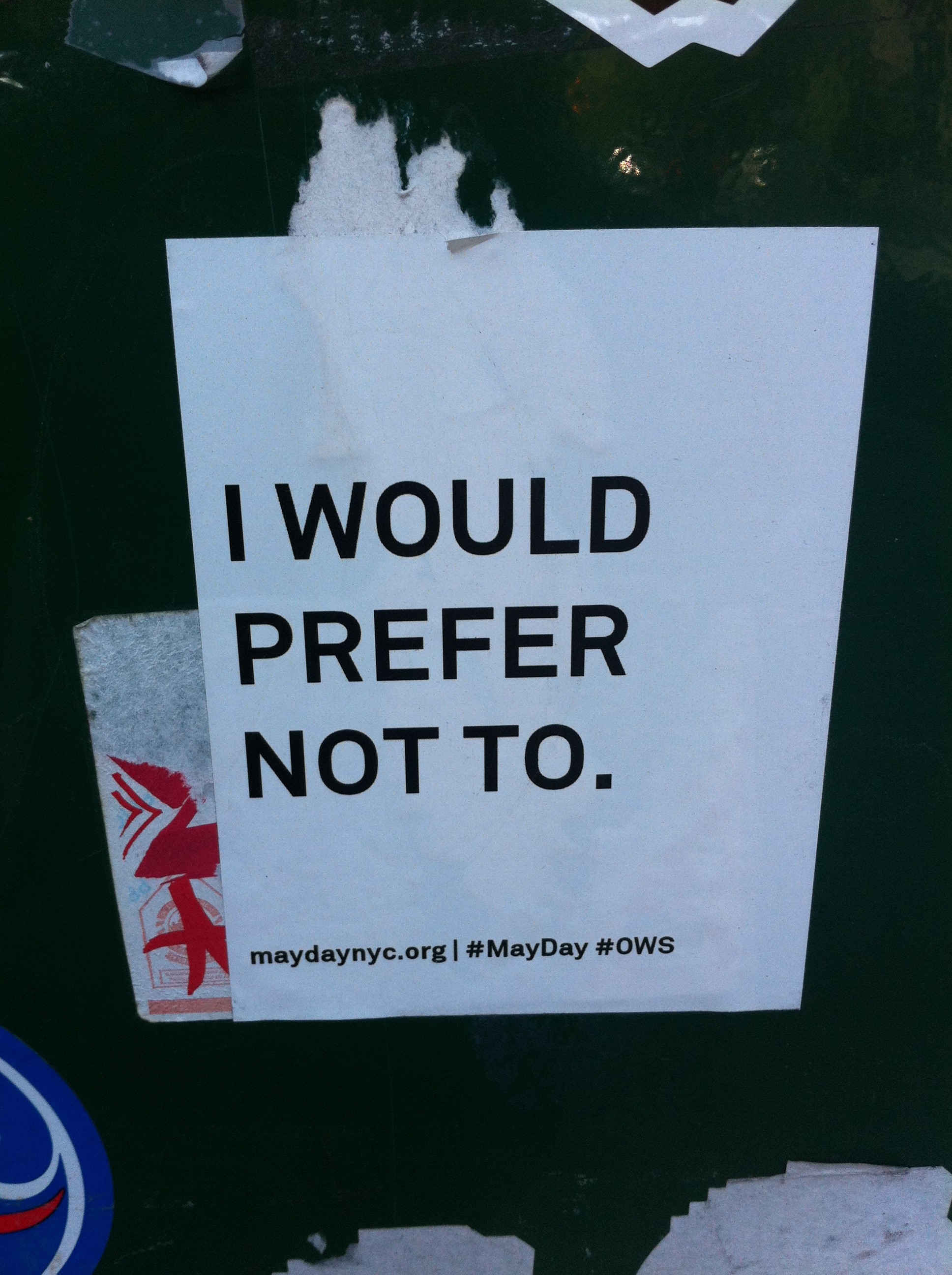

However, my interest shifts towards the lawyer, the narrator of the story, who, according to Deleuze, plays the role of the prophet, giving us a poor account of what he witnessed in Wall Street. My focus is on Agamben's development of the idea of pure potentiality as the source of creativity, where from the new potential community could emerge, embodied in the figure of the scrivener, a man without vocation and without purpose. The essay evolves around Melville's story Bartleby the Scrivener that was object of interpretation of many contemporary philosophers. I submitted this paper as my master thesis at Goldmiths, University of London. What is the nature of this hold that the character possesses? What exactly is “the Bartleby effect?” And so while “Bartleby” is the name of a character and a story, the name stands for much more for a series of forces that invite a stunning sense of scope and complexity. Deleuze argues this point by drawing from a vast array of subject areas: linguistics, ethics, psychiatry, etc. But as Deleuze addresses in his article, this is not because Bartleby is just a peculiar man but the sign that he is a kind of metaphysical anomaly. The attorney is driven to an inescapable connection with Bartleby such that no matter where he goes, he is overcome by his uncanny nature. And rather than tragedy, it is a text to be taken as comedic, not in lieu of Bartleby’s fate, but the madness that his behavior induces among other characters in the story, specifically Bartleby’s boss, the unnamed attorney.

While the story seems ripe for interpretation as a protest against corporate culture or an exposé on depression, 20th Century French philosopher Gilles Deleuze suggests in “Bartleby or, The Formula,“ (1993) that neither the character of Bartleby nor the story function as metaphors: both are to be taken literally. This is the story of Herman Melville’s 1853 novella, Bartleby, the Scrivener a classic of American literature. He is imprisoned where he “prefers not to” eat and eventually he dies. But each time after being told to accomplish a task, Bartleby replies in a monotonous yet haunting tone, “I would prefer not to.“ Beyond this, he is quite a nuisance, displaying the most incomprehensible behavior. The story seems simple enough: a Wall Street attorney hires an unusual loner by the name of Bartleby as a scrivener to accommodate a growing boom in business.


 0 kommentar(er)
0 kommentar(er)
